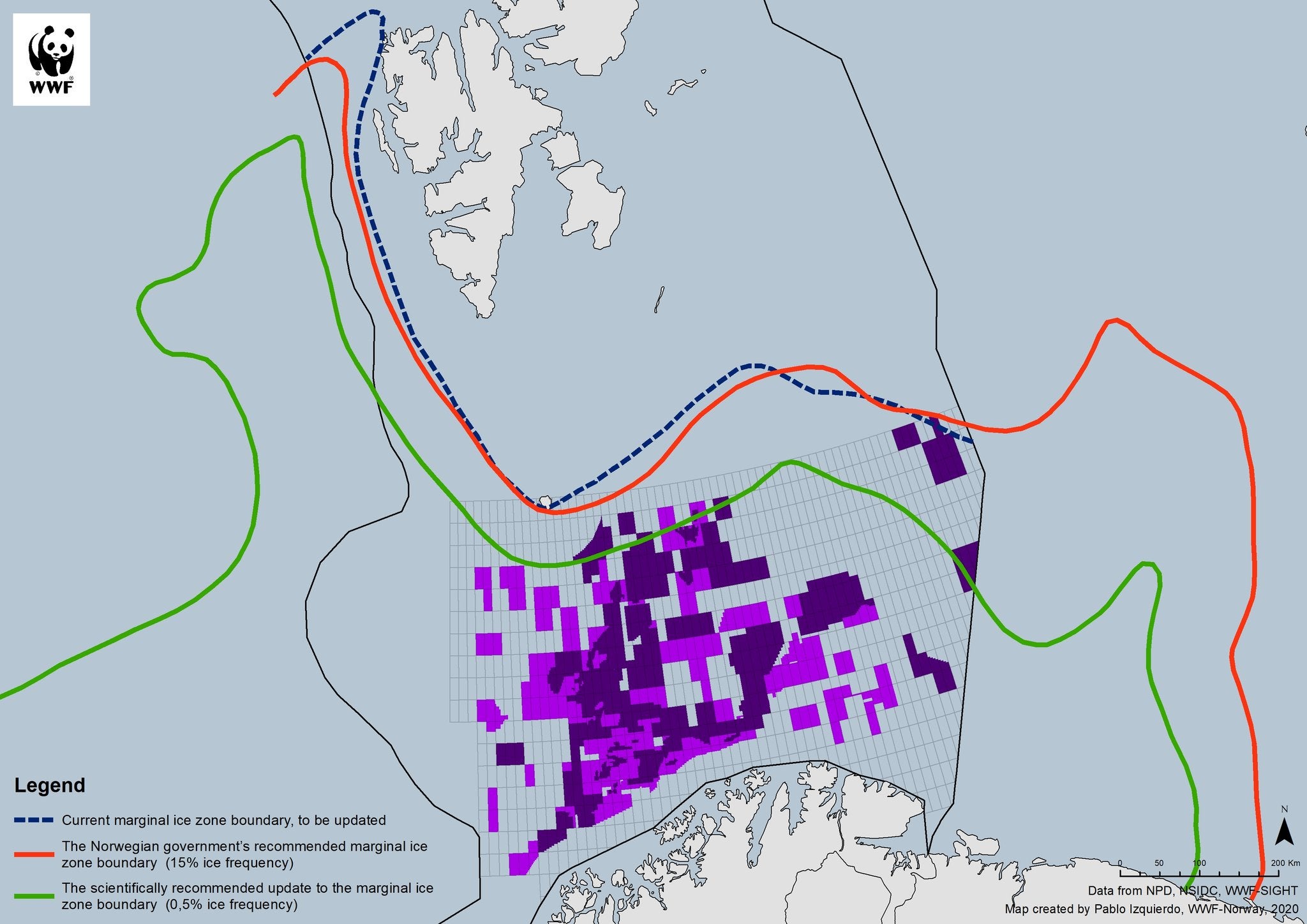Oil lobbyists representing UK firms push Norway to avoid strict curbs on Arctic drilling
Exclusive: Allowing more extraction could put fragile and diverse ecosystem at risk, warn campaigners
Fossil fuel lobbyists representing UK oil interests are pressuring Norway to ignore proposals that would restrict offshore drilling in Arctic seas teeming with vulnerable and diverse sea life.
BP and Centrica, two of Britain’s biggest oil and gas firms, have major stakes in companies pushing to retain access to regions in the Arctic Ocean that experts say are vital to animals ranging from plankton to polar bears.
Government scientists at Norway’s polar and marine research institutes have recommended shifting an Arctic no-go zone for oil extraction much further southwards, encompassing an area the size of England and Wales.
But ministers from Norway’s centre-right minority government infuriated experts when they ignored their own scientists’ advice, instead suggesting only minor adjustments to the existing boundary. The government’s proposal accounts for only 14 per cent of the total area its scientists say should be protected.
Ahead of a final vote on the issue in Norway’s parliament on Thursday, a lobbying group representing Aker BP and Spirit Energy urged MPs to oppose the proposal by scientists, and instead back the ruling Conservative Party.

The two firms, part-owned by BP and Centrica respectively, have stakes in seven of eight licences already issued that would be threatened by the larger expansion of the boundary, which is called the marginal ice zone (MIZ).
Other UK firms represented by pro-oil Norwegian lobbyists on Thursday included Royal Dutch Shell and Ineos.
Research has shown sea ice within the MIZ has a more widespread impact on wildlife than previously thought. When spring comes, the area covered by drifting ice becomes abundant with life, with algae blooms supporting zooplankton growth, which in turn attracts fish, birds and sea mammals.
Scientists say the MIZ should be shifted to where ice has just a 0.5 per cent chance of forming each year, down from the 30 per cent probability that currently defines the boundary.
Though oil companies were pushing to retain the 30 per cent limit, saying any reduction at all lacks scientific justification, they have come out in support of the ruling Conservatives’ claimed compromise of 15 per cent.
But opponents say the proposal is no compromise, as the “arbitrary and unscientific” 15 per cent boundary shift does nothing to prevent oil extraction across vast swathes of the Barents Sea.
“Both BP and Centrica like to boast about their commitment to climate action, yet their subsidiaries are lobbying to open up more of the Arctic to oil drilling – and against scientific advice,” Charlie Kronick, a senior climate campaigner at Greenpeace, told The Independent.
“If they were really committed to avoiding catastrophic climate change BP and Centrica would be lobbying to close new frontiers for oil drilling, not to open them. These companies should ditch their plans to drill for oil and gas we don’t need and invest in the clean energy sources that are replacing them.”
WWF Norway chief Karoline Andaur urged Britain to end its role in the Arctic, warning continued exploitation of oil there risked having a “disastrous impact” on sea life.
“Oil companies – including those with British interests, such as Aker BP – must stop their oil exploration in this ecologically sensitive region,” she said.
“Oil companies are seeking to profit from the exploitation of oil reserves, but not only will their general operations be damaging, a potential oil spill at the edge of the sea ice would have a disastrous impact on this vitally important ecosystem because of the sensitivity of key species in the area.”
Lars Haltbrekked, a Socialist Party MP who sits on Norway’s environment committee, told The Independent that politicians should have no role in answering a scientific question such as where to place the ice-edge boundary.
“The scientists are clear on where the ice edge is in the Arctic, and politicians cannot define whether an area is vulnerable or not, that’s up to scientists to define,” he said.
“What we have seen is the government making up their own decision on where the zone is. If today’s government were to decide whether Earth is flat or round, they would make a ‘compromise’ and say it’s a square.”
He added: “This is the most important environmental issue in Norway this year, whether to allow drilling in vulnerable areas of the Barents Sea or not. A lot of countries will look towards what Norway does on this, and I fear that if we allow oil companies to drill further north, other countries will follow.”

BP Aker referred The Independent to a Norwegian Oil and Gas Association statement, which said it was “pleased” the government’s definition would define “the basis for continued commercial activity” in the region.
The Norwegian oil and gas sector is now in a “very challenging situation”, the trade body said, adding that “predictability for the production licences awarded by the government is important”.
Shell said it had “no active position” in the Norwegian Arctic, while Centrica, Spirit Energy and Ineos are yet to respond to requests for comment.
The bitter dispute comes amid urgent warnings by scientists that the world is running out of time to address climate change.
A 2018 United Nations report found the planet was on track to reach 1.5C of warming between 2030 and 2052 if temperatures continued to increase at the current rate, and 3C by the end of the century.
Once Earth hits 2C warming, the world will be a profoundly different place. There will be almost no coral reefs remaining, the Arctic will be completely devoid of ice during summer at least once a decade, and huge numbers of animals and plants will become extinct as their habitat shrinks, scientists say.
Join our commenting forum
Join thought-provoking conversations, follow other Independent readers and see their replies
Comments
Bookmark popover
Removed from bookmarks